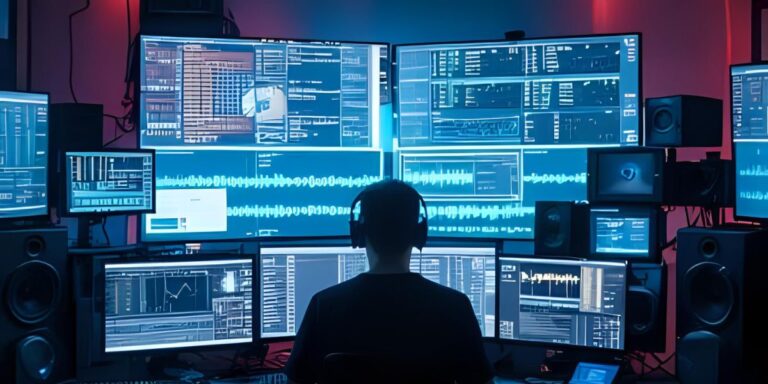The music industry is currently experiencing a transformative shift with the rise of AI-powered technology. In the past few years, artificial intelligence has made notable strides, offering new tools that are reshaping how music is created, produced, and consumed. This shift is not only influencing major labels but also opening new opportunities for independent artists, who can now create high-quality music with far fewer resources than ever before.
One of the most significant advancements in AI music technology is the development of AI-generated music tools. These platforms allow artists to compose and produce music by simply providing a set of instructions or inputting specific preferences. AI algorithms are able to generate complete musical compositions, covering everything from melodies to harmonies and even production techniques. This innovation is especially beneficial for independent musicians who may lack the time, budget, or technical expertise typically required to produce professional-grade tracks. With AI, these creators can now experiment with different styles and genres, helping them expand their artistic horizons and increase their output without the need for extensive studio time or a large team of collaborators.
Beyond music production, AI is also making a significant impact on how listeners discover new music. AI-driven recommendation algorithms are becoming an integral part of streaming platforms, providing highly personalized music suggestions based on users’ listening habits, preferences, and even mood. These platforms are able to learn from each user’s interactions, offering tailored playlists, albums, and artists that align with their tastes. This level of personalization not only helps users discover new music more easily but also fosters a deeper connection between listeners and the music they love. For artists, this means reaching new audiences who might have otherwise never encountered their music.
The integration of AI in the music industry also presents exciting opportunities for music labels, marketing teams, and even live performance organizations. AI can predict trends, analyze audience behavior, and even assist in songwriting, offering valuable insights that were previously time-consuming or difficult to obtain. As these technologies evolve, they are expected to further streamline various aspects of the music business, providing both creative and commercial advantages.
While AI’s role in music technology is still relatively new, its potential is undeniable. As these tools become more sophisticated and accessible, it’s clear that AI will continue to play a pivotal role in shaping the future of the music industry. For both artists and listeners, AI-driven innovations promise to create an even more vibrant and personalized musical landscape, where creativity knows no bounds and discovery is always just a click away.


